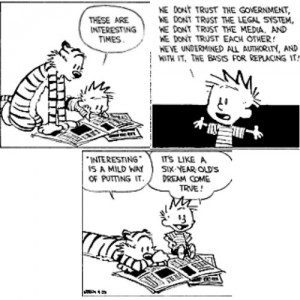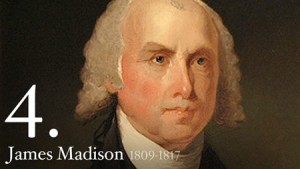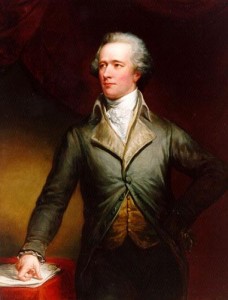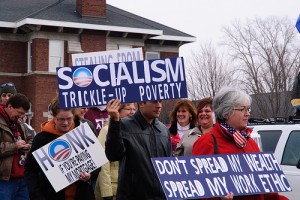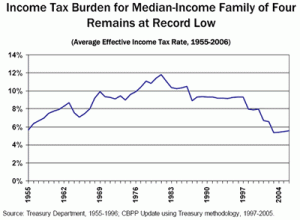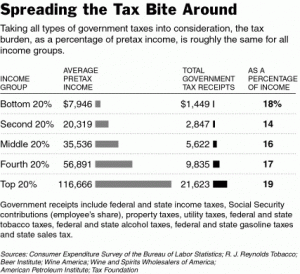Blog #5 – Founding Fathers distrust
Well, the more and more that I read about the Founding Fathers (a term coined by President Harding, a huge fan of alliteration), the more that I disturbed by how much that they distrust the “people” or the masses of unwashed, uneducated voters.
A people’s-led revolt like Shays’ Rebellion in 1786 that came on the heels of Hamilton’s call for a second look at the Articles of Confederation to be scheduled in Philly in May 1787 seemed to “confirm Thomas Jefferson’s fear of democratic despotism… An elective despotism was not the government we fought for” (Pageant 177). Apparently, civic virtue or public responsibility to follow the rules, the textbook authors wrote, was no longer strong enough to stop people from being greedy or “self-interest[ed].” Hmmmm… people shouldn’t follow their self-interest? They shouldn’t pursue happiness, to paraphrase TJ?
Haven’t we been taught from a young age that the Fathers wanted to guarantee the freedoms for which they had fought the British? Haven’t we been taught that this was a fight for the rule of law, for civil rights, for all to be free and equal (except if you were a slave)? As historian Bernard Bailyn stated our revolution’s main goal was “the destruction of privilege and the creation of a political system that demanded of its leaders the responsible and humane use of power” (Zinn 101).
But here’s James Madison, the “father of the Constitution” arguing in Federalist #10 that a strong central government will be able to keep the peace because the passions of the people will be too diffused or spread out: “A rage for paper money, for an abolition of debts, for an equal division of property, or for any other improper or wicked project, will be less apt to pervade the whole body of the Union than a particular member [state] of it” (Zinn 97).
Whose interests are the Fathers protecting? The people? What did the Fathers fear would happen if the people were totally in charge?
To quote Alexander Hamilton, ”
The voice of the people has been said to be the voice of God; and however generally this maxim has been quoted and believed, it is not true in fact. The people are turbulent and changing; they seldom judge or determine right. Give therefore to the first class [of people] a distinct permanent share in the government…“” (Zinn 96).
To curb the excesses, the unbridled passions of the publicly elected House of Representatives, the Senate was created as that check. In Federalist #63, a Senate was “sometimes necessary as a defence the people against their own temporary errors and delusions…[b/c] there are moments in public affairs when the people, stimulated by some irregular passion, or illicit advantage, or misled by some artful misrepresentations of interested men, may call for measures which they themselves will afterwards be the most ready to lament and condemn” (Zinn 98).
** The bold type is mine. I think this could apply to both of the political parties in today’s election, or worse yet, the money behind both political parties.
I think the Fathers’ concerns comes from several sources, but mainly from the idea that these men who made the Constitution were elitists and designed a system that protected private property from being taken away arbitrarily by a voting public. We have heard them say time and time again that property = liberty. With a solid system in place, founded on the traditions of English law, America has been able to prosper because property has been guaranteed for over 200 years by courts and the government. If our private property hadn’t been guaranteed by these safeguards, then investments would probably be worthless, and our future would have been dicey. People with money would have taken their money elsewhere or pushed for a different form of government.
This pattern has repeated itself time and time again in many of the Latin American countries that have emulated us with their Constitutions since they overthrew the Spanish in the 19th Century, but because there isn’t a consistent turnover of power or protection of civil rights, the wealthy in those countries have gotten behind any strong man who promises order. In America, we believe in the rules even when those rules frustrate us or look as if they are being abused b/c in the long run, we believe that it will all work out.
For this blog, please answer the following questions:
1. Do you think the Founding Fathers were right to distrust the passions of the American people when they wrote the Constitution? Why or why not?
2. What passions / fears are swaying the American people right now as they currently head towards the polls today? Provide specific examples.
250 words minimum. Thanks.
Due Wednesday, November 3.

